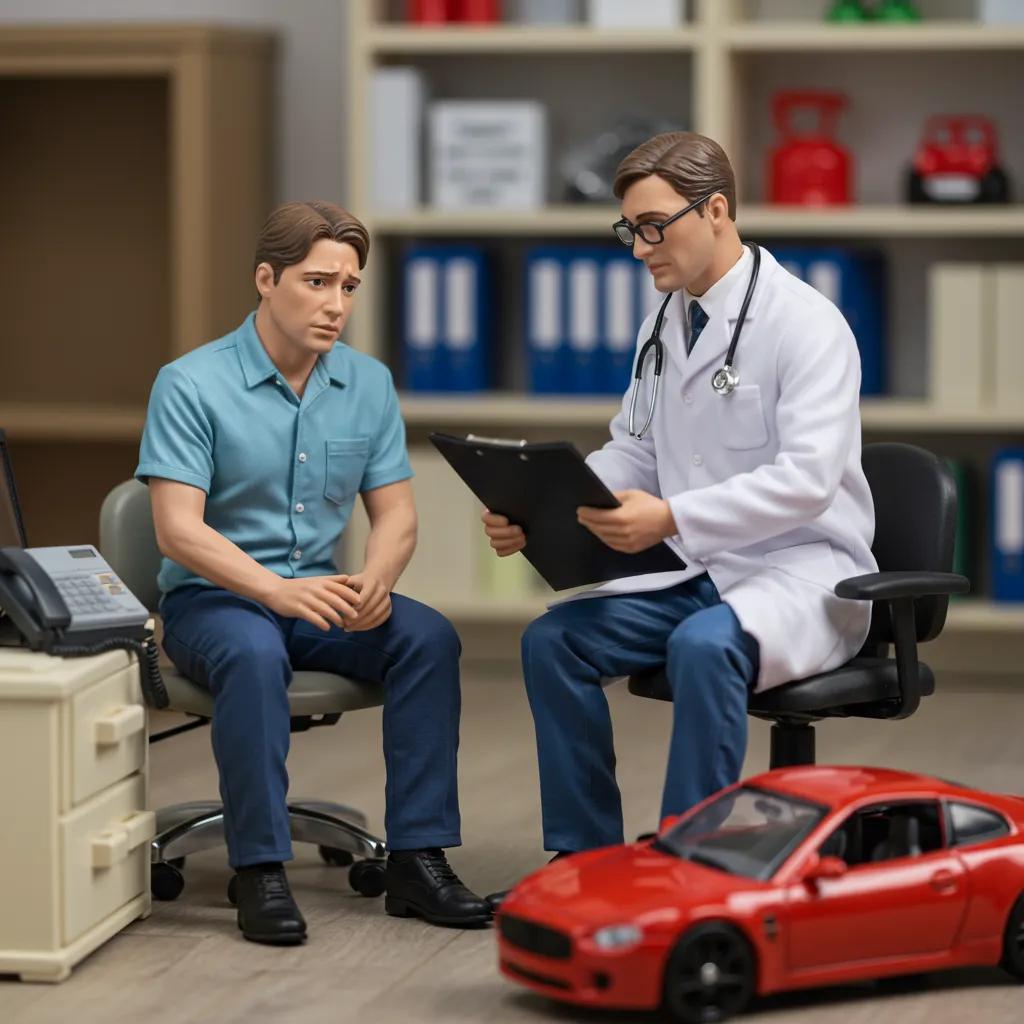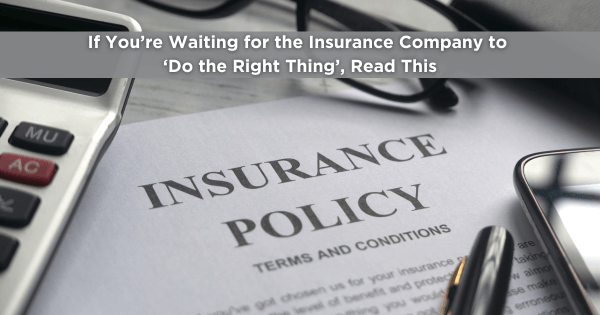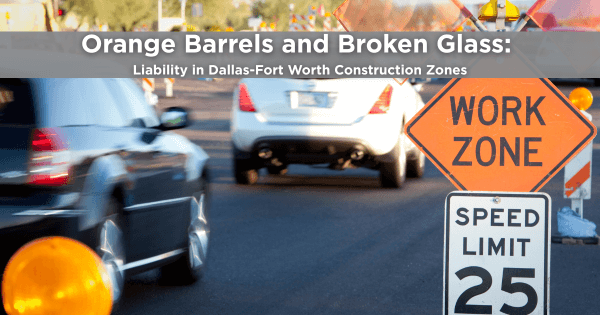Every year, thousands of accident victims in Texas compromise their personal injury claims and recovery by overlooking critical steps the moment a collision occurs. Missing essential actions—from calling the police to documenting your injuries—can weaken evidence, reduce compensation, and expose you to legal pitfalls unique to Texas law. In this guide, you will learn how to avoid six categories of post-accident errors:
- Immediate on-scene mistakes
- Delayed or inadequate medical care
- Insurance claim missteps
- Legal and documentation oversights
- Harmful social media and public statements
- Texas-specific reporting pitfalls
By understanding these common missteps and following clear, actionable advice, you can protect your rights, maximize your settlement, and accelerate your physical and financial recovery in Texas.
Why Choose Our Experienced Texas Legal Team?
Navigating the aftermath of a car accident in Texas can be overwhelming. Howard Lotspeich Alexander & Williams, PLLC (HLAW) stands apart with a proven track record of success, deep understanding of Texas personal injury law, and a commitment to our clients’ well-being. We offer:
- Decades of Combined Experience: Our attorneys bring extensive knowledge to every case.
- Client-Centered Approach: We prioritize your recovery and fight tirelessly for your rights.
- No Upfront Fees: We work on a contingency basis, meaning you pay nothing unless we win.
- Local Texas Expertise: We understand the nuances of state-specific laws and court systems.
Schedule Your Free Consultation
Avoid These Immediate Mistakes After a Texas Car Accident
Failing to take the correct first actions after a crash in Texas undermines your personal injury claim and can expose you to legal consequences. Immediate missteps often involve law enforcement, witness information, and communication errors that insurers and attorneys scrutinize. Learning what not to do sets the stage for stronger evidence and a smoother claims process.
Why Should You Always Call the Police After a Car Accident in Texas?
In Texas, calling law enforcement is crucial, especially if the accident involves injury, death, or property damage exceeding $1,000. An official Texas Peace Officer’s Crash Report (CR-3) documents location, damage, and statements from all parties. This report serves as independent evidence that verifies your account and supports your insurance claim and potential lawsuit. Without this official report, insurers may question liability or argue conflicting versions of events, making your claim much harder to prove in Texas.
Importance of Police Reports in Auto Accidents
Police reports are a foundational tool in any car accident case, offering an unbiased snapshot of the crash by a trained observer. They help confirm the accident, prove liability, corroborate medical records, and demonstrate negligence, thereby lending credibility and weight to the claimant’s version of events.
This research highlights how an official police report serves as independent evidence, verifying the account of the accident and supporting insurance claims and potential lawsuits, which directly aligns with the article’s advice to always call the police.
Attorney Tip: “A police report isn’t just a formality; it’s often the first piece of objective evidence in your case. Without it, you’re relying solely on conflicting testimonies, which can significantly complicate proving liability,” advises HLAW partner,Jesse Lotspeich.
What Are the Risks of Leaving the Accident Scene in Texas?
In Texas, leaving the scene of an accident before officials arrive, especially if there’s injury, death, or significant property damage, constitutes a ‘hit and run’ offense. This can lead to severe criminal charges, including fines, jail time, and license suspension, as well as the loss of uninsured motorist benefits. Fleeing the scene can also invalidate your own insurance claim. Staying until Texas law enforcement completes their report is essential to safeguard your legal and financial interests.
Case Example: In a recent Texas case, a driver who left the scene of a minor fender-bender later faced felony charges when the other party reported a delayed injury. The initial property damage was under $1,000, but the act of fleeing escalated the legal consequences dramatically, illustrating the severe risks of not waiting for law enforcement.
How Does Failing to Exchange Information Harm Your Claim?
Neglecting to collect the other driver’s name, contact, insurance policy, and vehicle details hampers claim processing and reconstruction of events. Without complete information, your insurer may deny coverage or delay benefits while chasing down elusive data. Always record full driver, witness, and plate details on the police report and your own notes.
Expert Insight: “Thorough documentation at the scene, including contact information for all parties and witnesses, is non-negotiable. It’s the bedrock of your claim and prevents insurers from claiming a lack of verifiable data,” emphasizes HLAW Partner Jason Howard.
Why Is Admitting Fault at the Scene a Critical Mistake?
Admitting guilt—even saying “I’m sorry”—can be construed as an admission of liability and used against you in settlement negotiations or court. Insurance adjusters leverage any self-incriminating statements to minimize payouts. Instead, stick to factual descriptions of what happened: “My car and the other vehicle collided at the intersection.”
Expert Insight: “Even a seemingly innocent ‘I’m sorry’ can be twisted by insurance adjusters into an admission of fault. Your primary concern should be safety and information exchange, not assigning blame,” states HLAW Partner Luke Williams.
What Should You Avoid Saying to Other Parties Immediately After a Crash?
Avoid discussing fault, assuming blame, or speculating on injuries in conversations with other drivers or passengers. Simple remarks like “I shouldn’t have turned” or “I think you hit me” create recordable admissions. Instead, exchange essential information and politely defer fault discussions to your insurance companies and legal counsel.
How Can Delayed or Inadequate Medical Attention Affect Your Car Accident Claim?

Ignoring or postponing medical care after a collision undermines the link between the crash and your injuries, reducing compensation for pain, suffering, and lost wages. Prompt treatment and thorough documentation verify injuries and strengthen your personal injury claim.
What Are the Dangers of Delaying Medical Treatment After a Car Accident?
Delaying care allows hidden injuries—such as whiplash, concussions, or internal bleeding—to worsen without clinical documentation. Insurers often argue that untreated conditions stem from pre-existing issues rather than the collision. Seeking immediate evaluation preserves objective evidence of causation and severity.
Attorney Tip: “One of the biggest hurdles we face is when clients delay medical treatment. Insurance companies will seize on this, claiming your injuries aren’t serious or weren’t caused by the accident. Get checked out immediately, even if you feel fine,” advises the HLAW legal team.
The Impact of Delayed Medical Treatment on Your Personal Injury Claim
Delaying medical care after an accident can have serious consequences for both health and personal injury claims. Insurance companies frequently exploit delayed treatment to undermine the severity of injuries or reduce compensation, often arguing that the injury occurred after the incident or was not directly caused by the accident.
This research underscores the article’s point that ignoring or postponing medical care weakens the crucial link between the crash and injuries, providing insurers with grounds to dispute causation and severity, thereby reducing potential compensation.
Why Is Following Your Doctor’s Orders Essential for Your Injury Claim?
Adherence to prescribed therapies, medications, and follow-up visits creates a medical record trail demonstrating your commitment to recovery. Failure to comply can be cited as negligence, prompting insurers to reduce benefits or deny long-term disability claims. Completing all treatment recommendations substantiates your damages.
How Does Poor Documentation of Injuries Weaken Your Case?
Incomplete medical records, missing physician notes, or gaps between treatments leave attorneys and adjusters skeptical about injury authenticity. Every doctor’s diagnosis, imaging report, and therapy session note serves as proof of injury and prognosis. Consistent documentation ensures a cohesive narrative linking the accident to your losses.
What Common Injury Symptoms Are Often Missed After a Crash?
- Whiplash pain and stiffness
- Cognitive issues like concentration problems from concussion
- Nausea, headaches, or dizziness indicating internal trauma
What Are the Most Common Mistakes When Dealing with Insurance Companies?

Insurance carriers use tactics to minimize payouts. Missteps such as providing recorded statements or accepting lowball offers can lock you into inadequate compensation. Recognizing these errors protects your rights and maximizes your settlement.
Why Should You Avoid Giving Recorded Statements to Insurance Adjusters?
Recorded statements can be edited or taken out of context to challenge your credibility or shift liability. Adjusters ask leading questions designed to elicit responses that downplay damage. Politely decline to record details without legal representation and provide only high-level facts in writing.
What Are the Consequences of Accepting the First Settlement Offer?
Initial offers are often significantly below actual repair and medical costs. Accepting too soon waives your right to pursue additional damages for ongoing pain or unexpected expenses. Reviewing offers with a personal injury attorney ensures you receive fair market value for property damage, medical bills, and non-economic losses.
Attorney’s Perspective: “Insurance companies are businesses, and their first offer is almost always designed to settle your claim for the least amount possible. It rarely accounts for future medical needs, lost earning capacity, or the full extent of your pain and suffering. Always have an experienced attorney review any settlement offer,” emphasizes Jess Lotspeich.
When and How Should You Notify Your Own Insurance Company?
Promptly report the crash to your insurer—ideally within 24 hours—using only factual information: date, time, location, and parties involved. Delayed notification can trigger policy breaches and claim denials. Provide documented proof such as police reports and photos rather than verbal embellishments.
What Are the Risks of Talking to the Other Driver’s Insurer Without Legal Advice?
The other party’s insurer represents the at-fault driver, not your interests. Casual remarks or medical updates can be used to reduce liability or link injuries to other events. Always refer adjusters to your attorney and communicate only through formal channels to safeguard your claim.
How Can You Recognize and Handle Insurance Adjuster Tactics?
- Minimization: Downplaying damage severity
- Delay: Requesting excessive documentation to stall payments
- Lowballing: Offering immediate but insufficient amounts
- Blame Shifting: Suggesting comparative negligence
Counter these by maintaining organized records, consulting a qualified personal injury lawyer, and refusing to sign releases until fully compensated.
How Do Legal and Documentation Errors Impact Your Car Accident Claim?
Failure to meet filing deadlines, gather essential evidence, or engage legal counsel can bar your ability to seek compensation. Clear documentation and timely action preserve your right to recover damages.
What Is the Statute of Limitations for Filing a Car Accident Claim in Texas?
In Texas, the statute of limitations for most personal injury claims arising from a car accident is two years from the date of the incident. This means you generally have two years to file a lawsuit. However, there are exceptions, such as claims against governmental entities, which often have much shorter notice requirements (sometimes as little as six months). Missing this critical deadline in Texas permanently forfeits your right to seek compensation through the courts.
Why Is Gathering and Preserving Evidence Crucial After a Crash?
Photographs of vehicle damage, skid marks, road conditions, and witness statements create a factual record of the incident. Preserved evidence prevents loss or tampering, enabling accident reconstruction experts to verify fault and support your personal injury claim.
When Should You Hire a Personal Injury Lawyer?
- You face serious injuries or significant medical bills
- Liability is disputed or multiple parties are involved
- The insurance company denies or undervalues your claim
Early representation ensures all deadlines are met, documentation is collected properly, and negotiations leverage expert guidance.
How Does Failing to Track Accident-Related Expenses Affect Your Settlement?
Unrecorded expenses—towing fees, rental cars, prescription costs—are often excluded from final settlements. Maintaining an itemized ledger with receipts substantiates your out-of-pocket losses, ensuring you recover every legitimate cost tied to the collision.
What Are the Legal Risks of Admitting Fault or Apologizing?
Statements of apology can constitute an admission of liability under certain laws, exposing you to comparative negligence claims that reduce your payout proportionally. Always express regret for distress, not fault, and let police reports or your attorney address liability.
How Can Social Media and Public Statements Harm Your Car Accident Claim?
Online posts and public comments offer insurers real-time access to your behavior, enabling them to challenge injury claims or suggest exaggeration. Controlling your digital footprint is as critical as gathering on-scene evidence.
Why Should You Avoid Posting About Your Accident on Social Media?
Photos or comments suggesting you’re healthy or active—ostensibly innocent—can be used to dispute injury severity. Insurance adjusters routinely monitor public profiles for contradictions. Refrain from sharing any details or images related to your crash, treatment, or legal process.
Social Media Impact on Car Accident Compensation
Insurance adjusters routinely scrutinize social media accounts for evidence that can undermine injury claims. Even seemingly harmless posts, photos, or check-ins can be taken out of context and used to argue that injuries are not as severe as claimed or to challenge the claimant’s credibility in court.
This research directly supports the article’s warning that online posts and public comments can be accessed and used by insurers to challenge injury claims or suggest exaggeration, emphasizing the critical importance of controlling one’s digital footprint during a claim.
What Are the Dangers of Discussing Your Accident Publicly?
Casual conversations about fault or injuries with friends, family, or online forums create multiple informal records that insurers can access. Even deleted messages or private chats may be subpoenaed. Keep all discussions about your claim confined to your attorney and medical professionals.
How Can Privacy Settings and Online Behavior Affect Your Case?
Failing to secure profiles or inadvertently approving friend requests from adjusters compromises confidentiality. Enable strict privacy controls, deactivate location tagging, and avoid posting physical activities that could contradict your medical records.
What Texas-Specific Mistakes Should You Avoid After a Car Accident?
Texas imposes unique reporting rules, deadlines, and damage caps. Ignoring these variations can derail your claim or leave you undercompensated.
What Are the Reporting Requirements for Car Accidents in Texas?
In Texas, you are legally required to report a car accident to the Texas Department of Transportation (TxDOT) if it results in injury, death, or property damage to an apparent extent of at least $1,000. This report, known as the Texas Peace Officer’s Crash Report (CR-3), must typically be filed by law enforcement within 10 days of the incident. If law enforcement does not investigate, you may need to file a Driver’s Crash Report (Form CR-2) yourself. Failing to meet these reporting requirements can lead to fines and negatively impact your insurance claim.
How Can Texas Laws Affect Your Personal Injury Claim Process?
Texas operates under a modified comparative negligence rule, often referred to as ‘proportionate responsibility.’ This means that if you are found to be 51% or more at fault for the accident, you are barred from recovering any damages. If you are found to be 50% or less at fault, your compensation will be reduced by your percentage of fault. For example, if you are 20% at fault for an accident with $10,000 in damages, you can only recover $8,000. Understanding Texas’s proportionate responsibility laws is crucial for accurate expectations and legal strategy.
What HLAW Clients Say
“They are very impressive, bright, organized, faithful and compassionate people. It will be worth your time to give them a call. If they can help, you will be in strong hands. And even if they can’t help, they’ll steer you correctly. Give them a call when the legal walls are closing in. I have no hesitation referring good people in a bad spot to the attorneys here.”
— HLAW Client, Fort Worth, TX
About Our Firm: Texas Car Accident Lawyers
This guide was compiled by our team of dedicated and experienced legal professionals specializing in Texas personal injury law. With decades of combined experience, our attorneys have successfully represented countless accident victims across the state, securing fair compensation and justice. Our commitment extends beyond the courtroom; we are passionate about empowering individuals with accurate, actionable information to protect their rights and secure fair compensation. We pride ourselves on our deep understanding of Texas statutes, our aggressive advocacy for our clients, and our compassionate approach to every case.
Legal Disclaimer
The information provided in this guide is for general informational purposes only and does not constitute legal advice. It is not a substitute for professional legal counsel. Laws are complex and subject to change, and individual circumstances vary significantly. While we strive for accuracy, this content may not reflect the most current legal developments. Always consult with a qualified Texas personal injury attorney for advice tailored to your specific situation and to ensure compliance with all applicable laws and deadlines. Relying solely on this information without professional legal guidance could have adverse consequences for your claim.
What Are the Best Practices to Avoid Common Car Accident Mistakes?
Following a consistent, step-by-step approach after every collision prevents oversights and enhances your claim’s strength. Integrate these strategies to protect your rights, evidence, and recovery trajectory.
What Step-by-Step Actions Should You Take Immediately After a Crash?
- Ensure safety by moving vehicles to a secure location if possible.
- Call 911 for police and emergency medical support.
- Exchange information with all drivers and witnesses.
- Document the scene through photographs and notes.
- Seek medical attention even for minor pain or shock.
- Notify insurers within 24 hours with factual details.
- Consult legal counsel before signing any releases.
How Can You Effectively Document the Accident Scene and Injuries?
Taking systematic photos of vehicle damage, road signage, skid marks, and your visible injuries establishes credible evidence. Numbered logs and time-stamped images prevent gaps. Back up all digital files and share them with your attorney for secure preservation.
When Is It Crucial to Consult a Personal Injury Lawyer?
Engage an attorney when liability is contested, injuries are severe, or you encounter unfair settlement tactics. A seasoned lawyer coordinates evidence gathering, medical evaluations, and pressure-tested negotiations to secure optimal compensation.
How Can You Protect Your Rights During Insurance Claims and Settlements?
- Communicate in writing only and keep copies of every letter or email.
- Refuse recorded statements without counsel present.
- Review settlement offers carefully with your attorney to identify hidden exclusions or waivers.
Structured, professional interactions maintain your leverage and prevent inadvertent concessions.
What Are the Key Takeaways to Maximize Your Compensation and Recovery?
Avoid immediate mistakes by involving police, exchanging data, and steering clear of self-incriminating remarks. Treat injuries promptly and follow medical advice meticulously. Recognize insurance tactics and engage a lawyer before negotiating. Comply with all Texas-specific rules and document every expense. Proactive, organized action transforms a stressful crash into a defensible, well-substantiated claim that can yield fair compensation and peace of mind.
Get Your Free Case Review Today
Don’t Navigate Your Texas Car Accident Claim Alone.
If you’ve been involved in a car accident in Texas, protect your rights and maximize your recovery. Our experienced personal injury attorneys are here to provide a free, no-obligation consultation to discuss your case and guide you through the complexities of Texas law.










